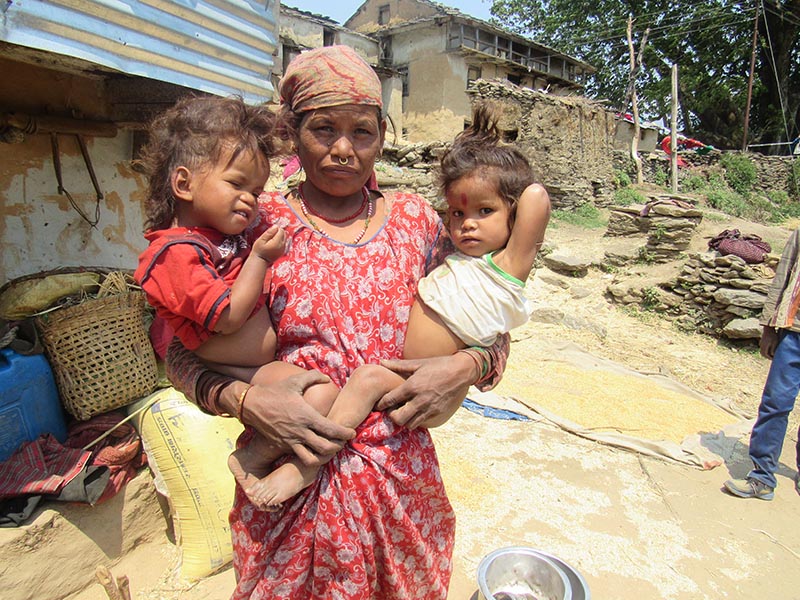UNICEF blames poor diet for children’s ill health
Kathmandu, October 15
One in every two children under two was deprived of balanced diet in Nepal, according to a report published by UNICEF. The report titled, ‘The State of the World’s Children 2019: Children, Food and Nutrition’, said 43 per cent of children in Nepal under five were malnourished.
In Nepal, 43 per cent children under five were either stunted or overweight. Only an estimated 45 per cent of children aged between six months and two years were fed at least five out of the eight food groups, specified as the minimum diet diversity.
Most of the children of this age group ate grains and legumes and only one in three children was being fed egg or fish or meat, according to the UNICEF report.
In Nepal, close to 38 per cent of children between six months and two years of age were deprived of fruits or vegetables.
The report described triple burden of malnutrition undernutrition, hidden hunger caused by lack of essential nutrients, and overweight among children under the age of five.
According to the report 1.1 million children have been stunted, or too short for their age in Nepal. Nearly 290,000 children were wasted, or too thin for their height and 1.3 million children, or one in two suffered from deficiencies of essential vitamins and nutrients such as vitamin A and iron, and approximately 36,000 children were overweight. As children began transitioning to soft or solid food, many of them were introduced to the wrong kind of diet, according to the report.
Poor eating and feeding practices started from the earliest days of a child’s life. Though breastfeeding could save lives, for example, only 66 per cent of children under six months of age were breastfed in Nepal.
The report also revealed that overweight and obesity levels in childhood and adolescence were increasing worldwide.
From 2000 to 2016, proportion of overweight children between five and nineteen years of age doubled from one in ten to almost one in five, stated the report.
According to the report obesity among children and adolescents has increased by 29 times in the past four decades in Nepal. Overweight and obesity increased with wealth and household food security.
The report revealed that at least one in three children under five or over 200 million were either undernourished or overweight, globally. Almost two in three children between six months and two years of age were not provided diet that supported their rapidly growing bodies and brains. Malnutrition put children at risk of poor brain development, weak learning, low immunity, increased infections and, in many cases, death, according to the report.
“Despite all technological, cultural and social advancement in the past few decades, we have lost sight of this most basic fact that If children eat poorly, they live poorly,” said Henrietta Fore, UNICEF executive director issuing a press release. “Millions of children subsist on an unhealthy diet because they simply do not have a better choice. The way we understand and respond to malnutrition needs to change.
It is not just about getting children enough to eat, it is above all about getting them the right food to eat. That is our common challenge today,” he said.
The report also stated that natural disasters caused severe food crises. Drought, for example, was responsible for 80 per cent of damage and losses to agriculture, dramatically altering what food was available to children and families, as well as the quality and price of that food.






